Deann Gayman, May 21, 2021
Research institute aims to bring diverse ‘new storytellers’ to digital scholarship
The University of Nebraska–Lincoln is preparing to welcome 23 emerging scholars from minority-serving institutions for an intensive, interdisciplinary institute that will explore the platforms, tools, designs and ethical questions surrounding digital humanities projects in ethnic studies.
“New Storytellers: The Research Institute in Digital Ethnic Studies” will begin May 24 and be held virtually over 10 weeks. It is one of the only digital humanities research institutes in the United States focused on digital research in ethnic studies. It was made possible by grant funding from the American Council of Learned Societies and support from the Center for Digital Research in the Humanities and the Institute for Ethnic Studies.
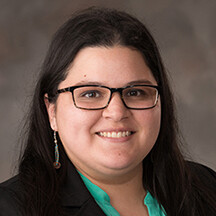
Huettl
“New Storytellers” was organized by a team of scholars at Nebraska committed to bringing new voices and diverse stories and projects into the digital humanities sphere. Leading the effort are co-principal investigators Joy Castro, Willa Cather Professor of English and ethnic studies and director of the Institute for Ethnic Studies; Margaret Huettl, assistant professor of history and ethnic studies; Jeannette Eileen Jones, associate professor of history and ethnic studies; Ken Price, Hillegass University Professor of American Literature and co-director of the CDRH; and Will Thomas, Angle Chair in the Humanities, professor of history and associate dean for research and graduate education in the College of Arts and Sciences.
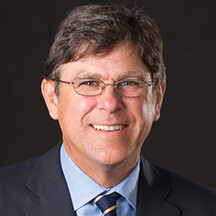
Thomas
“We want to have an open and mutual and developmental exchange at the national level, to raise the visibility of digital humanities in ethnic studies,” Thomas said. “In the digital space, we have a lot of work to do to bring out these new stories.”
The co-principal investigators are being assisted by Claire Jimenez, doctoral student in the Department of English with a graduate specialization in ethnic studies and a graduate certificate in digital humanities. In addition, CDRH staff are contributing to the institute, including Karin Dalziel, digital development manager and designer; Laura Weakly, metadata encoding specialist; Brett Barney, research associate professor; Kaci Nash, research associate; Greg Turnik, programmer/analyst; and Sarita Garcia, junior developer.
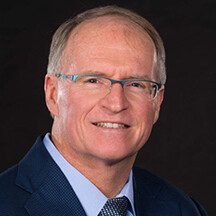
Price
The 23 fellows, selected through a competitive application process, will attend sessions led by digital humanities scholars from across the United States. The fellows identified a digital humanities project in their application, and the institute’s goal is to help the scholars develop these projects through a variety of session topics.
“We have people at different stages in the evolution of their projects. For some, it’s an idea that has just started, and for others, they’re in process,” Price said. “Through the institute, they’re going to be exposed to the big-picture plenary addresses, down to the very specific technical advice.”
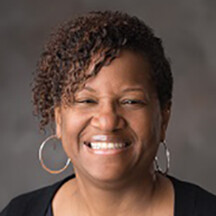
Jones
A key component of the institute is growing an intellectual community. There are networking sessions included in the syllabus and an opportunity for peer-to-peer mentoring.
“We are trying to foster and create relationships,” Jones said. “If we cultivate those relationships now, they may — maybe not right away, but down the road — become collaborators and have a professional community to lean on.”
Preparation and planning for the institute has been ongoing since 2017, when the co-principal investigators began visiting eight minority-serving institutions across the country — historically black colleges and universities, Native-serving institutions and Hispanic-serving institutions — to gather information about what faculty wanted and needed in terms of digital humanities. In 2018, the CDRH held its annual forum on the topic of “New Storytellers,” with many of the faculty members from minority-serving institutions in attendance. Following the forum, the Nebraska team planned a two-week, in-person institute for 2020, which was postponed by the COVID-19 pandemic.
Institute leaders reworked the schedule into a 10-week course for 2021 and invited back the fellows originally selected. All were able to attend.
The change to a virtual format, and a longer calendar schedule, allowed for some extra guest presenters to be added, including editors of scholarly journals and program officers from funding organizations, including the National Endowment for the Humanities and the National Historical Publications and Records Commission.
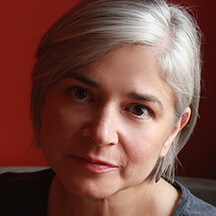
Castro
Castro said there is a pedagogical advantage to a longer format, as well.
“If you’re thinking about a project in a focused way for 10 weeks, even if it’s not all day, it is still at the forefront of your mind,” she said. “As you continue to develop the project, you’re going to have questions arise that might not have come up in a hyper-concentrated two-week schedule. You have more time to think it through, build on it and test things out.”
The 10-week period also will give scholars a long runway to get new projecs off the ground.
“It gives the participants time to embed their project in their home institution, and if they run into a technical problem or some questions, then they have time to come back to us, talk to us about it and then return home and tackle it one more time,” Price said.
Fellows will receive ongoing mentoring from the institute’s organizing team, as well as technical assistance when needed from CDRH.
The team plans to make the institute an annual offering and is seeking continued funding.
“We would like to see this independently funded and permanent,” Castro said. “Based on the demand we saw when people applied, this could run every year, and this is a dynamic field that is only growing.”
Thomas added: “Holding this institute at the University of Nebraska is putting it in the lead of digital humanities programs and centers around the country and around the world. We want to maintain that lead and sustain this project, as well as put it into a larger framework for race and ethnic studies inquiry, research, scholarship and publication at the university.”





